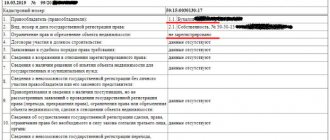In Belarus, an updated Housing Code has been in force since January 1, 2021: the comprehensive document continues to regulate controversial issues in housing relations, simplifying the organization of management and use of joint property of owners. In addition, it consolidated the established practice of applying legislation in the housing sector and systematized the regulatory legal acts adopted in recent years.
Changes in the structure of the public housing stock
Now it includes rental housing, residential premises for social use, dormitories, a special housing fund, which includes boarding houses for veterans, the elderly and disabled, children's boarding institutions, as well as a flexible fund. According to the head of the department for working with citizens and the media of the Ministry of Housing and Communal Services, Gennady Akstilovich, today we can state the positive effect of the creation of the state rental fund (rental housing accounts for about 8019.8 thousand sq. m), which not only made it possible to create an alternative private rental fund, but has also become an additional source through which the construction of new and renovation of existing housing continues. The Code defines the mechanism for calculating fees for the use of rental housing. It is calculated by multiplying the base rate of such fees and coefficients depending on the degree of improvement and location of housing, established by the regional executive committees and the Minsk City Executive Committee. In some cases, reduction factors are applied to this fee, which are also determined by decisions of local authorities.
Social guarantees
The new edition of the code provides for the preservation of social and legal guarantees for vulnerable groups of the population (there are 17 categories in total) who have the right to receive social housing. For example, this right is reserved for large families, citizens who have taken in three or more orphans and children left without parental care, as well as for veterans of military operations on the territory of other states, disabled people of the 1st and 2nd groups, citizens who have diseases, the presence of which makes it impossible for them to live together with other persons in the same room or one-room apartment.
Change of housing status
The opportunity has been provided to transfer occupied rental housing from the state housing stock into social housing.
This procedure is administrative and is carried out by local executive and administrative bodies at the request of citizens who have the right to receive residential premises for social use in accordance with the law. In some cases, the income of citizens is also taken into account. After the transfer of rental housing to social housing, only payments for housing and communal services will be charged. An exception will be for newly built houses: in this case, the transfer of housing to social housing will be possible at the request of citizens after 3 years from the date of putting the house into operation. Social housing will be provided exclusively in the form of a separate apartment. According to the new edition of the code, separate living rooms in apartments “in a common kitchen” with the specified status will not be provided.
Legal specifics of communal apartments
2
Posted by: Egorov Konstantin Mikhailovich Real estate, rental of premises, privatization, rent Articles 03/30/2010
The term "communal" is not a legal concept. However, it is invisibly present in the housing sector, since hundreds of thousands of Russians live in apartments occupied by several social tenants and room owners. The Housing Code of the Russian Federation, which came into force in 2005, contains regulations regulating the legal status of these residential premises, which are discussed in this article.
One of the most socially significant housing problems is communal apartments, in which hundreds of thousands of Russian citizens live. The current Housing Code of the Russian Federation (hereinafter referred to as the Housing Code of the Russian Federation) <1> distinguishes three types of communal apartments:
———————————
<1> Housing Code of the Russian Federation dated December 29, 2004 N 188-FZ (as amended on May 13, 2008) // SZ RF. 2005. N 1. Art. 14; 2006. N 1. Art. 10, N 52 (part 1). Art. 5498; RG. N 297. 12/31/2006; NW RF. 2007. N 43. Art. 5084; 2008. N 17. Art. 1756, N 20. Art. 2251.
- firstly, apartments, rooms in which are occupied by tenants under social tenancy agreements and members of their families;
- secondly, communal apartments, the rooms in which belong to the owners;
- thirdly, mixed communal apartments, the rooms in which belong to the owners, and some of them are occupied by tenants under a social tenancy agreement.
One of the significant shortcomings of the Housing Code of the Russian Federation is the lack of a clear definition of communal living space, communal apartment. Since the subject of this article is communal apartments, the author’s interpretation should be proposed.
A communal apartment is an apartment in which, under a social tenancy agreement, the rooms are occupied by at least two tenants or the rooms are owned by at least two owners. This definition is not perfect, since it is based on the formal number of tenants and owners, but takes into account the position of the Housing Code of the Russian Federation, which interprets a communal apartment based on formal criteria.
Comments: E. Shipunova, Ph.D., lawyer.
Noting the undoubted contribution of the author, who developed the definition of a communal apartment not provided for by the Housing Code of the Russian Federation, I would like to note that this concept does not cover the type of communal apartments proposed by the author, such as mixed communal apartments. Also, in addition to the subjects and grounds for provision and use, I would like to emphasize in the definition itself the limited legal regime of a communal apartment (which the author analyzes in detail later in his article), which distinguishes a communal apartment from other types of residential premises. So, in my opinion, it should be pointed out that it is necessary to obtain the consent of all owners for the reconstruction and/or redevelopment of a communal apartment; the presence of a pre-emptive right to purchase/provide a room for use to other persons living in a communal apartment; presence of additional grounds for prohibiting exchange; concluding a sublease agreement and moving in temporary residents, subject to compliance with the provision norms; The common property in a communal apartment is in shared ownership.
Let us analyze the legal status of these categories of communal apartments.
In accordance with Part 3 of Article 30 of the Housing Code of the Russian Federation, the owner of the residential premises is entrusted with the burden of maintaining this premises. If the residential premises are an apartment, then the owner of the property bears the responsibility for maintaining the common property of the owners of the premises in the corresponding apartment building, and the owner of a room in a communal apartment also bears the burden of maintaining the common property of the owners of the rooms in such an apartment.
Part 1 of Article 41 defines the criterion for classifying property as common property in a communal apartment. The owners of rooms in a communal apartment own by right of common shared ownership the premises in this apartment used to service more than one room. These could be a corridor, a kitchen, a bathroom, a toilet.
Changing the size of common property in a communal apartment is possible only with the consent of all owners of rooms in this apartment through its reconstruction and (or) redevelopment.
In accordance with Part 1 of Article 42 of the Housing Code of the Russian Federation, the share of the owner of the room (rooms) in the common property in a communal apartment is proportional to the size of the total area of the room (rooms) belonging to him.
Parts 1 - 2 of Article 43 of the Housing Code of the Russian Federation establish that the owners of rooms in a communal apartment bear the burden of expenses for maintaining the common property in this apartment. The share of mandatory expenses for the maintenance of common property in a communal apartment is determined by the share in the right of common ownership of the common property in this apartment of the specified owner.
The Housing Code of the Russian Federation imposes on the owner of a room (rooms) in a communal apartment not only the obligation to maintain its common property, but also the obligation to bear the burden of expenses for maintaining the common property in an apartment building. It is proportional to the sum of the dimensions of the total area of the specified room and determined in accordance with the share in the right of common ownership of the common property in the communal apartment of this owner, the area of the premises constituting the common property in this apartment (Part 2 of this article).
Part 3 of Article 42 of the Housing Code of the Russian Federation establishes that the share in the right of common ownership of common property in a communal apartment of the owner of a room in a given apartment follows the fate of the right of ownership of the specified room. It is equal to the share of the previous owner (part 4 of this article).
A share in the common property of a communal apartment cannot be allocated in kind as a subject of alienation. In accordance with Part 5 of Article 42, it is prohibited to enter into transactions with her that entail the transfer of this share separately from the ownership of the specified room.
According to the author, part 6 of this article is debatable as to its validity, according to which, when selling a room in a communal apartment, the remaining owners of rooms in this communal apartment have a pre-emptive right to purchase the alienated room in the manner and on the conditions established by the Civil Code of the Russian Federation ( hereinafter referred to as the Civil Code of the Russian Federation) <2>. The blanket disposition of this norm refers to parts 1 - 3 of Article 250 of the Civil Code of the Russian Federation, which establishes the pre-emptive right to purchase (exchange) the sold share in common property. The seller of a share is obliged to notify in writing the other participants in shared ownership of his intention to sell his share to an outsider, indicating the price and other conditions under which he sells it. If the remaining participants in shared ownership refuse to purchase or do not acquire the sold share in the ownership of real estate within a month, the seller has the right to sell his share to any person.
———————————
<2> Civil Code of the Russian Federation (part one) dated November 30, 1994 N 51-FZ (adopted by the State Duma of the Federal Assembly of the Russian Federation on October 21, 1994) (as amended on December 18, 2006, as amended on December 29, 2006) (as amended and additional, which entered into force on January 8, 2007) // Collection of Legislation of the Russian Federation. 1994. N 32. Art. 3301; 2002. N 12. Art. 1093, N 48. Art. 4746; 2003. N 52. Art. 5034; 2004. N 27. Art. 2711, N 31. Art. 3233; 2005. N 27. Art. 2722; 2006. N 2. Art. 171, No. 3. Art. 282, N 52 (part 1). Art. 5498; RG. N 297. 12/31/2006; NW RF. 2007. N 7. Art. 834, N 31. Art. 3993, N 41. Art. 4845, N 49. Art. 6079, N 50. Art. 6246.
When selling a share in violation of the pre-emptive right, any other participant in shared ownership has the right, within three months, to demand in court the transfer of the rights and obligations of the buyer to him. This norm was first introduced in 2005 with the adoption of the Housing Code of the Russian Federation. Its goal is to reduce the number of communal apartments by providing a preemptive right to purchase the room(s) being sold to other owners of rooms in the communal apartment. However, according to the author, the application of this norm of the Civil Code of the Russian Federation to alienated rooms in a communal apartment is legally unlawful, since rooms belonging to different owners in a communal apartment are not common property. Part 1 of Article 244 of the Civil Code of the Russian Federation defines common property as property owned by two or more persons. Property may be in common ownership with the determination of the share of each owner in the right of ownership (shared ownership) or without the determination of such shares (joint ownership) (Part 2 of this article).
Communal apartments were initially provided under a social tenancy agreement. Subsequently, they were privatized in accordance with the Law of the Russian Federation of July 4, 1991 N 1541-1 “On the privatization of housing stock in the Russian Federation” <3>.
———————————
<3> Law of the Russian Federation dated 07/04/1991 N 1541-1 “On the privatization of housing stock in the Russian Federation” (as amended on 12/29/2004, as amended on 06/15/2006, with amendments and additions that entered into force 03/01/2007, as amended on 06/11/2008) // Gazette of the Congress of People's Deputies of the RSFSR and the Supreme Council of the RSFSR. 1991. N 28. Art. 959; Gazette of the Congress of People's Deputies of the Russian Federation and the Supreme Council of the Russian Federation. 1993. N 2. Art. 67; Collection of legislation of the Russian Federation. 1994. N 16. Art. 1864; 1998. N 13. Art. 1472; 2001. N 21. Art. 2063; 2002. N 21. Art. 1918; 2004. N 27. Art. 2711; Parliamentary newspaper. N 7 - 8. 01/15/2005; RG. 12/29/2005; RG. 06/18/2008.
Communal apartments created in the above manner do not fall within the definition of common property set out in the Civil Code of the Russian Federation, and, therefore, the provisions of Article 250 of the Civil Code of the Russian Federation cannot be applied to them.
Comments: E. Shipunova, Ph.D., lawyer.
Indeed, it is difficult to disagree with the author that the current housing legislation, in particular the reference to Art. 250 of the Civil Code of the Russian Federation, reflects a trend aimed at reducing the number of communal apartments.
However, it should be noted that this position of the legislator is aimed primarily at protecting the interests of citizens living in a communal apartment, since living in an apartment only for members of one family most contributes to the creation of the psychological atmosphere necessary to ensure a decent standard of living for a person.
The legal regime of communal apartments as a type of residential premises was developed in detail during the Soviet period of development of housing legislation. In accordance with the housing legislation of developed countries, for example the UK, rooms in communal apartments are not provided (Cowan D. Housing law and policy. Great Britain: Macmillan, 1999. 522 p.).
I would like to discuss with the author regarding the impossibility of applying Art. 250 of the Civil Code of the Russian Federation to the relations in question. Indeed, rooms in a communal apartment belong to different owners, but the common property in a communal apartment is in common ownership (Part 1 of Article 41 of the RF Housing Code), and Part 3 of Art. 42 of the RF Housing Code establishes that “the share in the right of common ownership of common property follows the fate of the right of ownership of the specified room,” i.e. in this case - for sale. In addition, it seems that the communal apartment itself (which includes rooms belonging to several owners) can, from a theoretical point of view, be considered as an object of common property.
The same political implications, aimed at reducing the number of communal apartments, have the provisions of Article 59 of the RF Housing Code, which determine the procedure for providing vacated residential premises in a communal apartment. The norms of this article establish the order of provision of vacated rooms in a communal apartment.
- First of all, vacated residential premises in a communal apartment in which several tenants and (or) owners live, on the basis of their application, are provided under a social tenancy agreement to the tenants and (or) owners living in this apartment, if at the time of vacating the residential premises they are recognized or may, in accordance with the established procedure, be recognized as low-income and in need of housing.
- Secondly, the vacated residential premises are provided under a social tenancy agreement to tenants and (or) owners living in this apartment, who can be recognized as low-income in the prescribed manner and who are provided with a total living area per family member that is less than the provision norm, based on their application.
- Thirdly, vacated residential premises are provided under a purchase and sale agreement to citizens who are provided with a total area of residential premises per family member that is less than the provision norm, based on their application.
- Fourthly, moving into a vacated residential premises is carried out on the basis of a social tenancy agreement in the manner prescribed by the Housing Code of the Russian Federation.
The provision of vacated residential premises in a communal apartment in the second, third and fourth stages is possible in the absence of applicants from the previous stages.
Thus, in the Determination of the Supreme Court of the Russian Federation dated 07.07.2009 N 85-B09-10, it was established that F. filed a lawsuit against the city government of the urban district "City of Kaluga", the Department of Municipal Economy (hereinafter referred to as UGH) of the city of Kaluga about recognizing as illegal the refusal to provide a living room under a social tenancy agreement, and forcing the conclusion of a social tenancy agreement for a living room <4>.
———————————
<4> Determination of the Supreme Court of the Russian Federation dated 07/07/2009 N 85-В09-10.
In support of the stated requirements, she indicated that she and her minor son F.T. registered and live in an eight-room communal apartment <…>. They occupy a room of 11.7 square meters. m, indicated on the apartment plan under No. 17. In 2008, a room with an area of 12.9 square meters was vacated in the apartment. m, indicated on the apartment plan under No. 18. No one lives in this room, the personal account is closed. Since 1992, the plaintiff has been registered as in need of improvement of living conditions as a matter of priority. Since a room had become vacant in the apartment, the plaintiff applied to the Kaluga city administration office to provide her with the vacant room on the basis of a social tenancy agreement. No one living in the apartment claims this room. On May 19, 2008, she was denied a room on the basis that the vacated room could only be provided to tenants who were or could be recognized as low-income, and she had no grounds for recognition as low-income.
The plaintiff believes that since she was registered to improve her living conditions before March 1, 2005, the refusal to provide her with a room is illegal.
By the decision of the courts of first and second instance, the plaintiff was denied satisfaction of her claims.
Having checked the case materials and discussed the arguments set out in the supervisory complaint, the Judicial Collegium for Civil Cases of the Supreme Court of the Russian Federation finds the supervisory complaint subject to satisfaction.
In accordance with parts 1, 2 of Article 59 of the Housing Code of the Russian Federation, vacated residential premises in a communal apartment in which several tenants and (or) owners live, on the basis of their application, are provided under a social tenancy agreement to the tenants and (or) owners living in this apartment, if at the time of vacating the residential premises, they are recognized or can be recognized in the prescribed manner as low-income and in need of residential premises. In the absence of citizens specified in Part 1 of this article in a communal apartment, the vacated residential premises are provided under a social tenancy agreement to the tenants and (or) owners living in this apartment, who may be recognized as low-income in the prescribed manner and who are provided with the total area of residential premises for one family member less than the provision norm, based on their application.
According to Part 2 of Article 6 of the Federal Law of December 29, 2004 N 189-FZ “On the Enactment of the Housing Code of the Russian Federation” (hereinafter referred to as the Introductory Law), citizens registered before March 1, 2005 for the purpose of subsequent provision of residential premises to them social tenancy agreements, retain the right to be registered until they receive residential premises under social tenancy agreements <5>. These citizens are removed from this registration on the grounds provided for in paragraphs 1, 3 - 6 of part 1 of Article 56 of the RF Housing Code, as well as in the event that they lose the grounds that, before the entry into force of the RF LC, gave them the right to receive residential premises under social tenancy agreements. These citizens are provided with residential premises under social tenancy agreements in the manner prescribed by the Housing Code of the Russian Federation, taking into account the provisions of this part.
———————————
<5> Federal Law of December 29, 2004 N 189-FZ “On the implementation of the Housing Code of the Russian Federation” (as amended on December 29, 2006) // Parliamentary newspaper. N 7 - 8. 01/15/2005; RG. 12/31/2006.
From the above norms of Part 2 of Article 6 of the Introductory Law, it follows that the citizens named therein retain the right to be registered as those in need of residential premises under a social tenancy agreement, as well as the right to be provided with residential premises under this agreement, regardless of their recognition as low-income, while while after the entry into force of the Housing Code of the Russian Federation, that is, after March 1, 2005, in accordance with Part 2 of Article 49 and Part 2 of Article 52 of the Housing Code of the Russian Federation, only low-income citizens or citizens belonging to a certain federal law have the right to be registered by decree of the President of the Russian Federation or by law of a subject of the Russian Federation category.
At the same time, Part 2 of Article 6 of the Introductory Law does not make exceptions for the cases provided for in Article 59 of the Housing Code of the Russian Federation for the provision of residential premises vacated in a communal apartment under a social tenancy agreement.
Since F. and F.T. were registered as those in need of residential premises in 1992, at the time of the dispute arose (May 2008) regarding the provision of vacated residential premises in a communal apartment under a social tenancy agreement, they continued to be registered on this account, then not only Article 59 was subject to application to the legal relations that arose The Housing Code of the Russian Federation, but also part 2 of Article 6 of the Introductory Law in their legal unity. However, the court did not apply Part 2 of Article 6 of the Introductory Law to the disputed legal relations between the parties.
Taking into account the above, the court decisions adopted in this case cannot be considered legal. They were adopted with a significant violation of the norms of substantive law, expressed in the non-application of Part 2 of Article 6 of the Introductory Law to the disputed relations of the parties and the incorrect interpretation of the provisions of Article 59 of the RF Housing Code, without taking into account Part 2 of Article 6 of the Introductory Law.
Under such circumstances, the Judicial Collegium finds that the above-mentioned violation of the law committed by the court is significant, it influenced the outcome of the case and without its elimination it is impossible to restore and protect the violated rights and legitimate interests of F. and her minor son F.T., in connection with which the appealed court decisions are subject to cancellation and the case is sent for a new trial to the court of first instance.
Comments: E. Shipunova, Ph.D., lawyer.
It should be noted that, indeed, in accordance with the above and as law enforcement practice in Moscow shows, those on the waiting list living in the apartment have a priority right to receive a room. If there are none, the possibility of a buyout is considered. Moreover, according to the position of the Department of Housing Policy and Housing Fund of the City of Moscow, “the sale of vacant rooms is carried out by concluding a purchase and sale agreement between the Department of Housing Policy and Housing Fund of the City of Moscow and individuals and can only be carried out to citizens occupying rooms in a given apartment under a rental agreement or those who own rooms” (//housing.mos.ru). If there are several applicants, controversial issues are considered by public housing commissions under the prefects of the administrative districts of Moscow.
When evicting from residential premises and providing citizens with another comfortable residential premises under a social tenancy agreement, one should be guided by the provisions of Articles 86 - 88 of the Housing Code of the Russian Federation, according to which the social tenancy premises must be comfortable in relation to the conditions of the relevant locality, equivalent in total area to the previously occupied residential premises premises, meet established requirements and be located within the boundaries of a given locality (Part 1 of Article 89 of the Housing Code of the Russian Federation).
For tenants and members of their families living with them in a communal apartment, in accordance with Part 2 of this article, a rule has been established according to which they have the right to receive living quarters consisting of the same number of rooms.
Certain advantages when providing rooms in a communal apartment under a social tenancy agreement are provided by Part 2 of Article 58 of the Housing Code of the Russian Federation, according to which residential premises consisting of one room can be provided with a total area exceeding the provision norm, but not more than twice.
It should be noted that this rule is not mandatory in nature, since it provides this opportunity at the discretion of the lessor, and does not oblige the latter to strictly follow the stated instructions.
In law enforcement (judicial) practice, equivalence means the provision of residential premises equal in area to those previously occupied. Thus, the Constitutional Court of the Russian Federation (Decision dated May 28, 2009 N 605-О-О) refused to accept for consideration the complaint of citizens G.V. Lomakin and Yu.A. Proskurin for violation of their constitutional rights by parts 1 and 2 of Article 89 of the RF LC <6>.
———————————
<6> Determination of the Constitutional Court of the Russian Federation dated May 28, 2009 N 605-О-О.
The Constitutional Court of the Russian Federation found that by decision of the Privokzalny District Court of the city of Tula dated September 11, 2008, the claims of citizens G.V. were rejected. Lomakin and Yu.A. Proskurin, who acted in his own interests, as well as in the interests of his minor daughter A.Yu. Proskurina, to the administration of the municipal formation "City of Tula" and the municipal unitary enterprise "Manager on approval of the List of severe forms of chronic diseases in which it is impossible for citizens to live together in the same apartment" <7>.
———————————
<7> Decree of the Government of the Russian Federation of June 16, 2006 N 378 “On approval of the List of severe forms of chronic diseases in which it is impossible for citizens to live together in the same apartment” // SZ RF. 06/19/2006. N 25. Art. 2736.
The presence of a disease from the specified List in a person living in the only residential premises, which is a communal apartment, in accordance with Part 4 of Article 51 of the Housing Code of the Russian Federation will be an additional basis for recognizing citizens as needing residential premises provided under social tenancy agreements, since the person’s disease makes it impossible living together with him in this apartment.
The law enforcer represented by the Supreme Court of the Russian Federation, in Resolution No. 14 dated July 2, 2009, explained that a forced exchange between former family members occupying a separate apartment, if they do not agree to move to living quarters located in a communal apartment, is not in itself a basis for refusing satisfaction of the claim, since with the breakdown of the family, which entailed the need for an exchange, these persons actually no longer use a separate apartment <8>.
———————————
<8> Resolution of the Supreme Court of the Russian Federation dated July 2, 2009 N 14 “On some issues that arose in judicial practice when applying the Housing Code of the Russian Federation.”
A residential lease agreement, the subject of which is a room in a communal apartment, has certain legal specifics. Its conclusion is possible with the consent of neighbors in a communal apartment (all tenants, owners, as well as adult members of their families living with them) (Part 2 of Article 76 of the Housing Code of the Russian Federation). In addition, in accordance with Part 1 of this article, a sublease agreement for residential premises provided under a social tenancy agreement can be concluded provided that, after its conclusion, the total area of the relevant residential premises per resident in a communal apartment is not less than the provision norm.
Thus, based on the above, the following conclusions can be drawn.
The current Housing Code of the Russian Federation does not have a clear legal definition of a communal apartment, which makes it problematic to apply a number of provisions of the Civil Code of the Russian Federation to their legal status.
The state seeks to reduce the sources of replenishment of communal apartments by providing a preemptive right to purchase vacated rooms by other owners of rooms in these apartments and priority provision of vacated rooms in order of priority to tenants living in communal apartments. However, according to the author, the application of the provisions of Article 250 of the Civil Code of the Russian Federation violates the rights of the owners - sellers of rooms, since in a number of cases the subject of the purchase and sale agreement is not common property.
It should be noted that the Housing Code of the Russian Federation, which came into force in 2005, does not contain rules providing for the possibility of dividing financial personal accounts and allocating residential premises in residential premises occupied under a social tenancy agreement. In essence, the state has eliminated one of the sources of replenishment of communal apartments. However, the problem in this case has become latent, since the breakdown of the family leads to the formation of a communal apartment in a residential building occupied under a social tenancy agreement, since the former spouses begin to maintain a separate household and actually live separately. Consequently, this residential premises de facto becomes a communal apartment.
Another source of replenishment of communal apartments, as paradoxical as it may sound, is the development of market relations in the field of residential real estate. The purchase of shares in residential premises and the inheritance of shares in residential premises by heirs create the legal conditions for the creation of communal apartments. The allocation of shares in kind in a residential building, in essence, means the emergence of a de jure communal apartment. The purchase and inheritance of shares without allotment in kind turns a living space into a de facto communal apartment. In both cases, the co-owners of the apartment have the right to live in the given residential premises, maintain a separate household, and independently pay for housing and utilities.
The state policy regarding reducing sources of replenishment of communal apartments is not consistent. Thus, when evicting with the provision of another comfortable living space under a social tenancy agreement, living space in a communal apartment consisting of one or more rooms can be provided.
Formation of savings for major repairs
The accumulation of funds contributed by payers of housing and communal services as future payments for major repairs was carried out even before the new Housing Code in special accounts, in accordance with Resolution of the Council of Ministers of Belarus No. 571 of June 12, 2014. Now these funds, as well as accrued interest for their use, have become more protected from collection under enforcement and other documents that are the basis for writing off funds from accounts in an indisputable manner. Now they will be used only to reimburse the costs of major repairs of residential buildings in the manner prescribed by law.
The edition of the Housing Code of the Russian Federation was amended by Federal Law No. 59-FZ dated April 3, 2018, which came into force with a delay of 3.5 years. The Code establishes the possibility of concluding direct agreements between property owners in apartment buildings and resource supply organizations. In addition, the rights of the general meeting of owners of premises in an apartment building and the procedure for operating common property have been clarified.
Direct contracts
The Housing Code of the Russian Federation has a new article 157.2 of the Housing Code of the Russian Federation “Provision of utility services by a resource supplying organization, a regional operator for the management of municipal solid waste,” which establishes for consumers of utility services the possibility of directly concluding contracts:
- cold and hot water supply;
- drainage;
- electricity supply;
- gas supply;
- heating;
- for the provision of services for the management of solid municipal waste -
directly with organizations providing relevant services.
To do this, two conditions must be met:
- the general meeting of owners of premises in an apartment building must make a decision provided for in clause 4.4 of part 2 of article 44 of the Housing Code of the Russian Federation;
- rupture of general agreements concluded in accordance with the requirements established by the government of the Russian Federation between the management organization, homeowners' association or housing cooperative or other specialized consumer cooperative and resource supply organizations.
Clause 2 of the new Article 157.2 of the RF Housing Code provides that a resource supplying organization has the right to unilaterally terminate a resource supply agreement concluded with a management organization if the management organization has a debt recognized or confirmed by a judicial act that has entered into legal force in an amount equal to or exceeding two average monthly values payment obligations under a resource supply agreement or an agreement for the provision of services for the management of municipal solid waste. In this case, the contract is terminated regardless of the fact of subsequent payment of this debt by the person managing the apartment building. The resource supplying organization is obliged to notify both the management organization itself and all owners of premises in the apartment building about such termination of the contract. At the same time, a “direct” agreement is concluded with the owners and tenants of the premises in the apartment building. Such “direct” contracts do not necessarily have to be in writing. Paragraph 6 of this article states this as follows:
An agreement containing provisions for the provision of utility services, an agreement for the provision of services for the management of solid municipal waste between the owner of premises in an apartment building and a resource supplying organization, a regional operator for the management of solid municipal waste, are concluded for an indefinite period in accordance with standard agreements approved by the Government of the Russian Federation. Federation. A written agreement is not required.
The agreement is concluded with all owners of premises in an apartment building at the same time. According to the norms of the new edition of Article 161 of the Housing Code of the Russian Federation, in the case of concluding such “direct” contracts, the constant readiness of utilities and other equipment that are part of the common property of the owners of premises in an apartment building for the provision of utilities is still ensured by management organizations that are obliged, in including, providing resource-supplying organizations with access to common property in an apartment building in order to suspend or limit the provision of utility services to premises owners in cases provided for by law. Also, management organizations and homeowners' associations are responsible for monitoring the quality of communal resources and the continuity of their supply to the boundaries of the common property in an apartment building.
General meeting of owners
Article 44 of the Housing Code of the Russian Federation “General meeting of owners of premises in an apartment building” has been supplemented with a new clause 4.4. It says that the general meeting has the right to decide on the conclusion by the owners of premises in an apartment building, acting on their own behalf, of contracts for cold and hot water supply, sewerage, electricity supply, gas supply (including the supply of domestic gas in cylinders), heating (heat supply, including the supply of solid fuel in the presence of stove heating), contracts for the provision of services for the management of municipal solid waste directly with the resource supplying organization and the regional operator for the management of municipal solid waste.
In accordance with the new edition of Article 46 of the Housing Code of the Russian Federation, a copy of the minutes of the meeting, as well as the decision adopted at it, must be sent to the resource supplying organization, the regional operator for the management of municipal solid waste, with which the owners of premises in an apartment building, acting on their own behalf, will, In accordance with the decision made, contracts were concluded.
Payment for housing and utilities
Paragraph 16 of Article 12 of the Housing Code of the Russian Federation, which regulates the powers of government bodies of the Russian Federation in the field of housing relations, has changed. Now their powers also include:
- establishing a fee structure for housing and utilities;
- determining the procedure for calculating and paying such fees;
- development of methodological recommendations for establishing the amount of payment for the maintenance of residential premises for owners of residential premises who have not decided on choosing a method of managing an apartment building;
- decision to establish the amount of payment for the maintenance of residential premises;
- establishing a procedure for determining the maximum indices for changing the size of such a fee.
According to the norms of the new edition of Article 20 of the Housing Code of the Russian Federation, the functions of the State Housing Supervision, among other things, include checking the validity of the amount of payment for the maintenance of residential premises for owners of residential premises who have not decided on the choice of method of managing an apartment building, as well as monitoring compliance with the maximum indexes of changes in the size of such a fee.
In Article 155 of the Housing Code of the Russian Federation “Payment of payment for residential premises and utilities”, paragraphs 6.3 and 7.1 have lost force.
Activities of owners' associations
The decision-making mechanism has been simplified: the share of votes required to make decisions on all issues within the competence of the general meeting of the owners’ association and the developers’ organization has been reduced. In addition, on issues of reorganization, liquidation and alienation of common property, the decision-making threshold has been reduced from 100% to 2/3: it has become possible to make relevant decisions without the need to collect 100% of votes, which previously made such issues virtually unresolved. The mechanism for conducting absentee voting has also been simplified. Members of the association of owners and the organization of developers are given the right to choose the method of sending the voting ballot. For example, it can be sent by registered mail with notification of receipt or in another way provided for by the decision of the general meeting (meeting of authorized persons) of members of the owners' association or developer organization. The legislation does not establish an exhaustive list of such methods. But today, new software products are widely distributed that make it possible to conduct electronic voting in owner organizations, which minimizes the costs of holding general meetings and attracts a larger circle of participants.
Keep up with the times
The new edition of the Housing Code is a significant step forward towards the professionalization of housing management, says Gennady Kalenov, executive director of the International Association of Real Estate Management.
Why don’t many specialists in this field like, for example, the Russian experience in housing management? The fact is that the so-called management companies, in fact, are not such among our neighbors. We can say that these are privatized Soviet housing offices, which, as in Soviet times, carry out certain craft work. But the nuance is that serious financial flows pass through them: payments for heat and electricity, cleaning, maintenance, etc. All funds end up in the accounts of such management companies. It is not difficult to guess that such circumstances allow some managers to use these funds at their discretion. In European countries, management companies perform exclusively management functions, receiving into their current accounts only funds for services rendered and nothing more. There are no opportunities for redirection and misuse of finances in such cases; all actions are carried out only in the interests of home owners. Real management companies value their reputation very much, because they know that competition is fierce and the owners can change service providers at any time. The new edition of the Housing Code provides that our similar service organizations (in Minsk these are, for example, ten district municipal utility companies) will perform exclusively management functions. Now the owners also have the obligation to conclude an agreement for the management of the common property of residents. At the same time, homeowners have the right to receive reports and work plans: it is now possible to build clear contractual relations. The only thing that now distinguishes the domestic practice of relations between owners and management companies from the practices of many European countries is that our companies are exclusively municipal and are appointed by local authorities, and are not selected on a competitive basis. Everything else, except for small details, already coincides with the best European experience. As experts predict, in 4-5 years the next step is seen: the emergence of private management companies that will act according to similar rules.
On competition between the Civil and Housing Codes
In law enforcement practice, many difficulties arise from issues related to the resolution of conflicts between the Civil Code of the Russian Federation (hereinafter referred to as the Civil Code) and other federal laws adopted after its entry into force, containing norms regulating civil law or similar relations. One of these federal laws is the Housing Code of the Russian Federation (hereinafter referred to as the Housing Code).
Clause 1 of Art. 4 of the Federal Law of December 29, 2004 “On the entry into force of the Housing Code of the Russian Federation” (hereinafter referred to as the Introductory Law) establishes that until the laws and other regulatory legal acts in force on the territory of the Russian Federation are brought into compliance with the Housing Code, they are applied to the extent , since they do not contradict the LC and the Introductory Law.
Both codes, the Civil Code and the Housing Code, are federal laws, that is, acts of equal legal force. According to the generally accepted principle of the advantages of a later normative act, as well as by virtue of the direct indication of paragraph 1 of Art. 4 of the Introductory Law, in the event of a contradiction between the rules of the LC and the Civil Code, priority must be given to the LC. On the other hand, clause 2, part 2, art. 3 of the Civil Code establishes that the norms of civil law contained in other laws must comply with the Civil Code. Which of the above codes, in the event of a conflict between them, should be given preference?
First, it seems appropriate to draw attention to the fact that regulated housing relations (housing relations) are heterogeneous in nature. Some of them are a type of relations of an administrative-legal nature, for example, relations regarding housing stock accounting, classifying premises as residential, obtaining permission for their reconstruction and redevelopment, etc. Other relations are essentially of a civil law nature, for example, relations between owners of residential premises regarding the use of common property and management of apartment buildings.
A general description of civil law relations is given in paragraph 1 of Art. 2 of the Civil Code are property relations based on equality, autonomy of will and property independence of their participants. The relationship between the owners of residential premises in an apartment building regarding the use and disposal of common property has all the listed characteristics.
Due to the civil law nature of these relations, in particular, the norms of Chapter 16 of the Civil Code on common property, as well as Art. 290 of the Civil Code, which defines the composition of the common property of apartment owners in an apartment building.
So, some housing relations turn out to be at the same time civil legal relations, and in this case the question arises as to what norms of legislation - civil or housing - should be applied to regulate such relations. Due to the principle of priority of a later normative act, as well as the rules of paragraph 1 of Art. 7 of the Housing Code, which provides for the application to housing relations primarily of housing legislation, and the above-mentioned paragraph 1 of Art. 4 of the Introductory Law, possible conflicts between the norms of the Civil Code and the Housing Code should be resolved in favor of the latter.
However, in paragraph 2 of part 2 of Art. 3 of the Civil Code establishes a rule (there is no analogue in the LC) according to which the norms of civil law contained in other laws (and therefore in the LC) must comply with the Civil Code. The provisions of the Civil Code do not provide for the possibility of deviating from this rule in any cases.
Thus, by virtue of the rule of paragraph 2 of part 2 of Art. 3 of the Civil Code, conflicts between the norms of the Civil Code and the Housing Code in cases where we are talking about norms regulating relations of a civil legal nature should be resolved in favor of the Civil Code. But such a conclusion has the right to exist only if we consider this rule as a method established for the law enforcer to resolve conflicts between the Civil Code and other laws. Since the question about the addressee of the rule, paragraph 2, part 2, art. 3 of the Civil Code has an independent and very important significance; let us dwell on it in more detail, starting with a short historical excursion.
As is known, the period of development of the Civil Code occurred in the early 1990s. It was a time of numerous naive expectations of positive changes associated with such radical transformations in the political and economic spheres as changes in the social system in the USSR and the abolition of this union state, the acquisition of independence by the Russian Federation, etc. Such changes were expected in all areas of Russian society, and the sphere of civil law was no exception in this regard.
Civil legislation of the Soviet period was considered overly complicated and contradictory. To a certain extent, this corresponded to reality, although, in fairness, it should be noted that in terms of complexity and inconsistency, the legislation of the USSR period is significantly inferior to modern Russian legislation.
This unfavorable situation in the field of civil law regulation was to be corrected by the new Civil Code, which, as those involved in its development often said in their numerous appearances in the media, would become a kind of “economic constitution” of Russian society. However, the normative product of this “mountain” of declarations turned out to be a “mouse” in the form of clause 2, part 2, art. 3 GK.
Soon after the entry into force of the first part of the Civil Code, that is, after January 1, 1995, the question began to appear in the legal literature: to whom is the rule of clause 2, part 2, art. 3 of the Civil Code - to the legislator or the law enforcer?
Judging by the declarations mentioned above, according to the intention of the legislator, it should have been addressed specifically to the law enforcer, otherwise the Civil Code could not have become an “economic constitution”, but from the standpoint of the literal and logical interpretation of the law, it did not turn out to be such. The phrase “The norms of civil law contained in other laws must comply with this Code” looks like either a command or a wish addressed by the legislator to himself. But perhaps the legislator simply formulated his thought unsuccessfully or ineptly, and yet he still addressed the cited rule to the law enforcer?
However, the subsequent content of Art. 3 of the Civil Code immediately shows that the legislator does not deserve such a reproach - he is good at formulating rules for resolving conflicts between normative acts. To do this, just read paragraph 5 of Art. 3 of the Civil Code: “If a decree of the President of the Russian Federation or a resolution of the Government of the Russian Federation conflicts with this Code or another law, this Code or the corresponding law shall apply.”
The legislator establishes such a rule directly following the provisions of paragraphs 3 and 4 of Art. 3 of the Civil Code, according to which decrees of the President of the Russian Federation regulating civil law relations must not contradict the Civil Code and other laws, and decrees of the Government of the Russian Federation containing norms of civil law can be adopted only on the basis of and in pursuance of the Civil Code, other laws and decrees of the President of the Russian Federation.
If we turn to other federal laws, which the legislator calls codes and at the same time gives them the meaning of a kind of “constitution” in a certain area of public relations, then as an example we can point to the Budget Code of the Russian Federation of July 31, 1998 (hereinafter referred to as the BC), in the original version of Part 2 of Art. 2 of which it was established that the regulatory legal acts provided for in Part 1 of Art. 2 of the BC (that is, in particular, federal budget laws) cannot contradict the BC, and in the event of a contradiction between the BC and the regulatory legal acts provided for in Part 1 of Art. 2 BC, BC applies. Federal Law of April 26, 2007, second sentence of Part 2 of Art. 2 of the BC, addressed to the law enforcer as a principle for resolving conflicts between the BC and other budget legislation, was excluded from this norm, which deprived the BC of the meaning of a “budgetary constitution”.
Thus, the rule of paragraph 2, part 2, art. 3 of the Civil Code was not initially addressed to the law enforcement officer. Consequently, it was addressed by the legislator to himself. As what - instructions or wishes?
The legislator cannot deprive himself of the constitutional right to pass laws, as well as to change or repeal them (in whole or in part). Therefore, if we consider the rule of clause 2, part 2, art. 3 of the Civil Code as a prohibition addressed by the legislator to himself to pass laws that contradict the Civil Code, then by adopting each such law the legislator partially (that is, in relation to the specific law being adopted) cancels his original prohibition. Therefore, the legal force of clause 2, part 2, art. 3 of the Civil Code, in essence, is equal to the legal force of a non-binding wish of the legislator.
As the Constitutional Court of the Russian Federation has repeatedly indicated (for example, Determination 22-O of February 3, 2000), contradictions between the Civil Code and other federal laws regulating civil law relations must be eliminated in the process of law enforcement, since the Constitution of the Russian Federation is not defined (and not can be determined) the hierarchy of acts within one type, in this case - federal laws.
Not a single federal law by virtue of Art. 76 of the Constitution of the Russian Federation does not have greater legal force in relation to another federal law. The correct choice and interpretation of the rules to be applied in a particular case is the responsibility of courts of general jurisdiction and arbitration courts, so let us turn to the judicial approach to the issues of interaction between the Civil Code and the Housing Code.
As stated in paragraph 4 of the Resolution of the Plenum of the Supreme Court of the Russian Federation dated July 2, 2009 N 14 “On some issues that arose in judicial practice when applying the Housing Code of the Russian Federation (hereinafter referred to as Resolution N 14), when resolving disputes arising from housing relations, the courts must take into account that housing legislation is under the joint jurisdiction of the Russian Federation and its subjects (clause “k” of Part 1 of Article 72 of the Constitution of the Russian Federation) and includes the Housing Code, other federal laws adopted in accordance with it, as well as those issued in accordance with These include decrees of the President of the Russian Federation, decrees of the Government of the Russian Federation, regulatory legal acts of federal executive authorities, laws and other regulatory legal acts of constituent entities of the Russian Federation, regulatory legal acts of local governments (Part 2 of Article 5 of the LC). At the same time, the Housing Code has the greatest legal force among acts of housing legislation in regulating housing relations. If the court reveals a discrepancy between the norms of other acts of housing legislation and the provisions of the Housing Code, the norms of the Housing Code must be applied (Part 8, Article 5 of the Housing Code).
Further, paragraph 4 of Resolution No. 14 draws attention to the fact that residential premises can be the object of both civil and housing legal relations. In connection with the above, courts are asked to proceed from the fact that civil legislation, in contrast to housing law, regulates relations related to the ownership, use and disposal of residential premises as an object of economic turnover, for example, transactions with residential premises, including the transfer of residential premises for commercial lease (emphasis mine - A.E.). The approach proposed by the Supreme Court of the Russian Federation seems quite justified.
In conclusion, let us dwell on one very significant contradiction between the Civil Code and the LCD. Let's start with the fact that among the relations regulated by housing legislation, in clause 3, part 1, art. 4 of the Housing Code names the relations of premises owners regarding the use of common property. The legislator sets out relations regarding the disposal of such property in Art. 4 LCD does not mention.
Consequently, since these relations have all the signs of relations regulated by civil law, priority in regulating the relations of premises owners regarding the use of common property in the event of a conflict between the norms of the Housing Code and the Civil Code should be given to the Civil Code as a special law.
According to paragraph 1 of Art. 246 of the Civil Code, the disposal of property in shared ownership is carried out by agreement of all its participants. The Civil Code does not provide for any exceptions from this rule, including with regard to the disposal of common property of owners of residential premises in an apartment building.
In accordance with paragraph 1 of Art. 290 of the Civil Code, the owners of apartments in an apartment building own, by right of common shared ownership, the common premises of the house, the supporting structures of the house, mechanical, electrical, sanitary and other equipment outside or inside the apartment that serves more than one apartment.
Thus, according to paragraph 1 of Art. 246 of the Civil Code, in order to dispose of the common property of the owners of residential premises in an apartment building, including for the disposal of the common premises of such a house, the consent of all owners of residential premises is required. As noted in paragraph 7 of the Resolution of the Plenum of the Supreme Arbitration Court of July 23, 2009 No. 64 “On some issues of practice in considering disputes regarding the rights of owners of premises to the common property of the building” (hereinafter referred to as Resolution No. 64), the transfer of individual parts of the building for use is permitted by agreement of the co-owners of the common property (owners of the premises in the building), and all co-owners of the common property of the building, who form a plurality of persons in accordance with current legislation, are recognized as a party to the corresponding agreement on the transfer of property for use.
At the same time, in paragraph 4 of Art. 36 of the Housing Code establishes that common property in an apartment building can be transferred for use to other persons by decision of the owners of the premises in the apartment building, adopted at a general meeting of such owners.
According to paragraph 1 of Art. 46 and paragraph 3, part 2, art. 44 of the Housing Code, a decision on the use of the common property of the owners of premises in an apartment building by other persons (in the original version of Article 44 of the Housing Code - on the issue of transferring such property for use) is made by a majority of at least two-thirds of the votes of the total number of votes of the owners of premises in an apartment building .
Meanwhile, the transfer of property for use is a transaction for the disposal of property. Cosmetic correction, clause 3, part 2, art. 44 of the Housing Code by the Federal Law of September 27, 2009, as a result of which the word “transfer” was bashfully excluded from it, does not in any way change the nature of transactions carried out by such a decision of the meeting, since in order for other persons to acquire the opportunity to use common property, it must be provided (transferred) to them for use.
Thus, the Housing Code, unlike the Civil Code, allows for the possibility of making transactions to dispose of the common property of an apartment building in the absence of the consent of all co-owners, which contradicts paragraph 1 of Art. 246 Civil Code. As shown above, unconditional priority in resolving a conflict that arises, including taking into account Resolution No. 14 and Resolution No. 64, should be given to the Civil Code.
The above means that all transactions for the transfer for use to other persons of the common property of the owners of residential premises in an apartment building, made in the absence of the consent of all co-owners of such property, that is, all owners of residential premises in an apartment building, are contrary to the law and are void by virtue of Art. 168 Civil Code.










